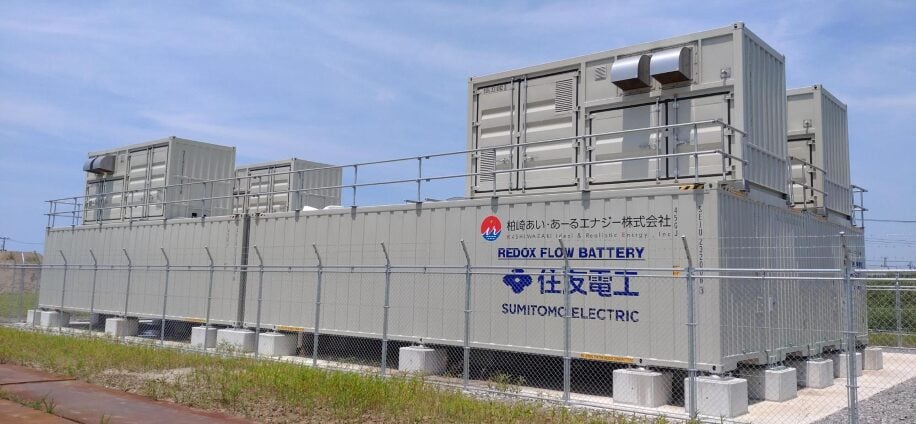US-headquartered GSSG, Vision Ridge, launch Japan BESS developer with US$400 million committed

Vision Ridge has committed US$400 million to the business, which aims to develop, construct and operate utility-scale BESS assets on the Japanese power grid.
‘Chikuden’ means ‘electricity storage’ in Japanese—incidentally ‘chikudenchi’ means ‘storage battery’—and GSSG Chikuden has a goal of “supporting the urgent need for reliable, grid-scale energy storage infrastructure across the Japanese power market,” GSSG Solar CEO and managing partner Tomakin Archambault said.
GSSG Solar is headquartered in Denver, Colorado, in the US, but has an extensive portfolio of operating and under-construction solar PV projects in Japan, as well as smaller portfolios and pipelines in the US and Taiwan.
CEO Archambault said the new business had identified a “robust pipeline of development opportunities” in Japan.
Investor Vision Ridge has worked to invest in Japanese solar PV projects with GSSG Solar since 2014 and has experience of investing in BESS through its stake held in US developer-owner-operator Key Capture Energy from 2018, until KCE was bought by SK E&S Co, a subsidiary of South Korea’s SK Group.
As highlighted yesterday in an ESN Premium deep dive, Japan’s energy storage market is still evolving in terms of market and policy design. Nonetheless, it has key features that are attracting domestic and international players alike, including the ability to stack revenues from different streams and nationally available subsidy schemes.
The Japanese government recognised energy storage as a key item in its ‘Green Transformation’ (‘GX’) policy strategy as the country pursues its net-zero by 2050 target.
This led to market adaptations such as the inclusion of a definition of energy storage within power generator business categories, the recent opening up of balancing, wholesale energy trading, and ancillary services markets.
Meanwhile, the Long-Term Decarbonisation Power Source Auction (LTDA), a capacity market with a carve-out for batteries and pumped hydro energy storage (PHES), offers 20-year fixed revenue capacity contracts through the national grid operator association, OCCTO.
While much of Japan’s energy storage market activity is focused on new deployments of lithium-ion (Li-ion) BESS assets, two notable exceptions gaining some ground are the sodium-sulfur (NAS) battery from NGK Insulators and vanadium redox flow battery (VRFB) tech from Sumitomo Electric.
Sumitomo Electric was the first technology provider in Japan to deploy a long-duration energy storage (LDES) VRFB system for energy trading back in 2023, when it supplied an 8-hour duration 1MW flow battery (8MWh) to Kashiwazaki City in Niigata on the northern Japan Sea coast.
The technology company announced yesterday that municipal energy group Kashiwazaki IR Energy has placed what is now its third order for a Sumitomo Electric VRFB system.
A traditional groundbreaking ceremony was held last week. The new system, aimed for completion in Spring 2026, is another 1MW/8MWh system, and since the completion of the first project in September 2024, Kashiwazaki placed another order for an identically sized system.
That previous one went into operation in March, so by the time the third installation is done, the city will host 3MW/24MWh of Sumitomo Electric flow batteries.
The flow battery systems will charge from the grid at times of abundant solar PV generation and discharge during peak demand periods to help integrate the region’s growth of renewable energy and stabilise the power network. At the same time, they will also participate in the whole electricity market power trading.
Kashiwazaki City has a history and industrial background in the petroleum and nuclear industries and is taking steps to transform its regional economy. Municipal electricity company Kashiwazaki IR Energy is funded by the city government and eight private companies.

Flow batteries are often marketed as rugged machines that can handle many more thousands of charge-discharge cycles over multiple decades of use than Li-ion battery systems without degradation or the risk of thermal runaway. This means they are, in theory, safer and suited for long-duration storage, while their long lifetime brings down Opex costs and cost of ownership.
At present, however, flow batteries are less energy dense and more expensive in terms of upfront investment than their lithium counterparts.
As reported by Energy-Storage.news yesterday, Anglo-American VRFB company Invinity Energy Systems has just formed a partnership with Chinese company UESNT that it claimed can bring down the cost through supply chain advantages.
energy-storage




